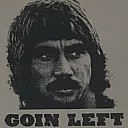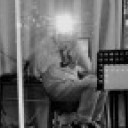Turnbull rolls over "again" to the ultra right


floyd wrote:I know many people who are life-long Liberal Party voters. They have voted informal at the last two elections because they can't stand Abbott and everything he stood for and did in opposition. They say sadly that the Liberal Party is no longer liberal rather a ultra-right conservative party. They bemoan the dishonesty of Abbott, Brandis, Sinodinos and others and question their motives to only represent their mates and big business. They comment how this crop of conservatives are fools to believe everything can be solved by the market. They believe things are going down the toilet and they can't see themselves ever voting "liberal" again.
Currently got American (Hawaiian) friends staying with us. Had to explain to them how Tony Abbott might front the Liberal Party but they don't represent liberalism. That they're more toward the other end of the spectrum. People laugh and say Yanks mislead when they say their baseball has a 'World Series', but the Liberal Party has gotta be up there for misnomers.


Blowin wrote:I've just discovered that under a free trade agreement , China will be allowed to supply labour for any large project in Australia and that the definition of large project has shifted from $2B to $1.5M.
That says more about the future standard of living for Australians than anything I've heard in quite a while.
I think it's $150m, not 1.5...not that it makes any diff when we're talking a threshold drop of $1.85b. This FTA also allows for materials to be brought in, not only labour.


tonybarber wrote:....but this makes good politics.
Pity this liberal version of "good politics" is so detrimental to Australia as a whole.





trippergreenfeet wrote:Blowin wrote:I've just discovered that under a free trade agreement , China will be allowed to supply labour for any large project in Australia and that the definition of large project has shifted from $2B to $1.5M.
That says more about the future standard of living for Australians than anything I've heard in quite a while.
I think it's $150m, not 1.5...not that it makes any diff when we're talking a threshold drop of $1.85b. This FTA also allows for materials to be brought in, not only labour.
Awesome way to sell the nations future.
So a Chinese company can buy and develop up to $2B worth of the Ord development , employ purely Chinese labour, import Chinese materials , then export the product to feed China. Whilst owning the water rights, which will be the real value in the not too distant future.
Then if Australia attempts to curtail our losses by renationalising the water rights for instance, well then the Chinese company can sue Australia.
We sure showed those Chinese how to negotiate a deal.


Akin to the time the government attempted to placate Indonesia after the scandal regarding the treatment of our live beef exports.
The Indo's stopped buying our beef so the government gave them $500M in " Aid" as an apology to stem the financial haemorrhaging by our cattle industry as the export market suffered .
The Indonesians then bought $500M worth of WA cattle country to grow their own beef to export back to Indonesia.... Fucking Australia even more succinctly.
So to stop losing our exports , we virtually gave away our sovereign soil so the Indonesians could completely bypass Australian producers thereby losing our exports and our land. Gold.


I'm not even sure Alan Jones would pass the pub test.


Alan Jones visiting a pub doesn't pass the pub test.


Never understood the Alan Jones phenomena . You'd imagine that his most fervent followers would also be the same people who would try to knock out someone like Alan Jones if they were to encounter him in a pub. Confusing.


China Communications Construction Company has just bought John Holland... and so it begins.
Good luck getting a job with John Holland if your an Australian citizen post 2016.


One of China's richest men has this $billion dollar monstrosity planned for the Surfers Paradise beachfront! Will he use low paid Chinese workers to build it and undercut the local workforce now that these new development rules apply with Abbott's Free Trade Agreement?
Anything to kick the construction unions in the guts and undermine Australian wages is good business in the eyes of the Coalition?


yorkessurfer wrote:?
Anything to kick the construction unions in the guts and undermine Australian wages is good business in the eyes of the Coalition?
There is the issue off China wanting to bring its people's standard of living up to western levels... the bigger issue for that to happen is our real minimum wage must fall to around $14/hr.


@Blowin…I trust you have read how Jones is on the case against the banks (currently ANZ and RABO) to help farmers in Queensland ? There is an interesting letter by Dr Pascoe, if you want to read about it. Yea, sure Jones can be a bit out there but sometimes he is not scared to say his piece. He has same opinions about the oil companies too, especially with CSGas. yeah, agree he is confusing.


ha ha 25 pages of whinging about Abbott, nice work guys :P


And counting Indo....
Grocer mentioned Hal GP Colebat's anti-union book Australia's Secret War. I thought I'd find out more about this author.....
He is the son of Western Australia's shortest serving Premier(Liberal) who resigned in disgrace after only 2 months in office after a bungled attempt to end a wharfies strike which escalated and resulted in the death of one of the dock workers at a the hands of police.
So in other words a fair and balanced(?) conservative authors' look at the role of unionists in World War II who received an award by our fair and balanced(?) conservative Primeminister Tony Abbott?
Speaking of the role of unionists in the lead up to WWII the term 'Pig Iron Bob' comes to mind.
The Liberal Primeminister of the late 1930's, Robert Menzies earned the nickname 'Pig Iron Bob' after continuing to sell large amounts of iron ore to Japan even when it became obvious that Japan was producing a huge amount of military armaments, warships, tanks, fighter planes and other weaponry.
Menzies argued that Australia's economy depended on selling pig-iron and other goods to Japan that could be used for the production of the Japanese war machine.
The Maritime Union of the day refused to load ships with pig-iron when it became obvious that Japan could be a threat to Australia. Menzies put a great amount of pressure on the strikers but the public supported them and food and goods were delivered to the workers and their families to support their cause and sustain them through the 7 week strike in which they received no income.
After the war with Japan broke out Menzies was turfed from office and Labor led the country through the war years. He only returned to office in 1948 after the hard work had been done and used the 'reds under the bed' fear of Communism to retake control of the country.


I've stayed out of this because I'm so far removed from Australian politics but I would like to tell you something about Peta Credlin.
I met her a few years ago at a function back in my past life and she is without a doubt the rudest, nastiest piece of work I have ever met. Pretentious, conceited, condescending you name it. The woman is a monster. Makes Sophie Mirabella look like Mother Theresa.
Oh and I bet you didn't know, she's scared of elevators. Has to always take the stairs.


YS ,
Let's not brush over the facts too much .
Print this article ✉ Send e-mail
COLEBATCH, SIR HAL PATESHALL (1872–1953)
SENATOR FOR WESTERN AUSTRALIA, 1929–33 (NATIONALIST PARTY)
Harry (Hal) Pateshall Colebatch was born at Wolferlow, Hertfordshire, England, on 29 March 1872, migrating with his parents to South Australia at the age of six. Educated at Goolwa, he left school at fourteen and entered journalism, working from 1889 to 1895 on the Silver Age at Broken Hill. Moving to Western Australia in 1895, he worked briefly on the Golden Age and the Kalgoorlie Miner. For a mistaken report of a punch-up between two politicians in Parliament House he was temporarily barred from parliamentary journalism, but moved to the Perth Morning Herald where he was respected as a versatile craftsman. Well read, a slightly stooped figure with a Vandyke beard, which he removed before entering politics, Colebatch bore the reputation of a shrewd investor in goldmining and a champion chess player. In 1896 he married Maud Mary Saunders at St George’s Cathedral, Perth; they had two sons.[1]
In 1905 Colebatch became editor-proprietor of a leading rural newspaper, the Northam Advertiser, acting as mentor to the newly elected MLA, James Mitchell, an unfailingly optimistic advocate of agricultural expansion. Colebatch was Mayor of Northam, from 1909 to 1914. After unsuccessfully contesting the East Province in the Legislative Council at a 1910 by-election, and the Avon seat in the Legislative Assembly in 1911, Colebatch won the East Province in 1912 and was never opposed subsequently. He soon established himself as an able parliamentary debater and critic of the Scaddan Labor Government. When the Scaddan Ministry lost office in July 1916 he was an obvious appointee as leader of the Legislative Council and Minister for Education in the successive non-Labor governments of the next seven years. It was a period of party turmoil, with the Labor Party splitting over conscription and the rise of the Country Party, which in November 1923 also split itself in two. As a member of the upper house, Colebatch was to some extent insulated from factional infighting, so that the National–Country Party Coalition turned to him for leadership following the resignation of the Premier, Sir Henry Lefroy. On 17 April 1919 Colebatch formed a well-balanced ministry, bringing his old ally Mitchell out of the wilderness. His premiership lasted only a month.[2]
Since his Broken Hill years Colebatch had been an opponent of radicalism and militant trade unionism; during the conscription controversy he dismissed the scholarly Dutch-born deputy Registrar General, Wilhelm Siebenhaar, for suspected lack of patriotism. Confronted on taking office with a bitter waterfront strike, he decided to supervise personally the erection of barriers on the Fremantle wharves intended to protect non‑union labour. As it travelled down the Swan River, his launch was attacked with a hail of old iron and other missiles from the Fremantle bridge; Colebatch and his party narrowly escaped injury. Clashes between police and watersiders led to one man’s death, and a riot was narrowly averted. Colebatch was severely shaken by this episode; so was public confidence in his leadership. Although he attributed his failure to find a seat in the Legislative Assembly to the refusal of the Country Party member of a neighbouring constituency to resign in his favour, other winnable seats were available for him. He preferred to resign in favour of Mitchell on 17 May 1919 and to resume his role as deputy leader and leader of the Legislative Council, holding a variety of portfolios.[3]
Colebatch was an efficient and able departmental minister. As Acting Premier early in 1919, his handling of quarantine restrictions during the Spanish influenza pandemic had its critics but won considerable public support. He significantly increased the number of country high schools in Western Australia, although his term as Minister of Education was marked by a prolonged schoolteachers’ strike. Sharing uncritically Mitchell’s dreams of rural prosperity, he promoted the expansion of the wheat-belt into marginal rainfall areas and supported the group settlement scheme. In 1920 he was largely responsible for the creation of the Department of the North‑West, with himself as first minister and the engineer, Geoffrey Drake-Brockman, as resident commissioner. Encouragement was given to cotton growing and the expansion of the beef cattle industry, though without sensitivity to Aboriginal interests. Because of economic and environmental factors neither initiative flourished.[4]
In 1923 Colebatch was created CMG and appointed Agent-General for Western Australia in London. He promoted migration and supervised the state’s overseas loans competently. At the end of his term in 1927, he was appointed KB. Back in Australia, he edited A Story of A Hundred Years, a somewhat triumphalist account of Western Australia’s history and economy, prepared for the centenary of settlement in 1929. From 1927 to 1929 he also served on the Peden Royal Commission on the federal Constitution, showing himself a well-informed advocate of states’ rights and contributing a thoughtful, if controversial, separate memorandum on finance.[5]
At the 1928 general elections Colebatch was returned as a senator for Western Australia, taking his seat on 1 July 1929. Although endorsed as a Nationalist he gave priority to his status as a state representative, an attitude becoming increasingly old-fashioned elsewhere in Australia but in keeping with an upsurge of secessionist feeling in Western Australia. During his first years in the Senate this tendency was subordinated to opposition towards the Scullin Labor Government. A trenchant and knowledgeable upholder of financial orthodoxy, as the Depression intensified Colebatch published several articles and pamphlets on the subject. In 1929 he served on the Select Committee on the Advisability of Establishing Standing Committees of the Senate and, as acting chairman, presented its reports. The committee’s recommendations were well received, a direct outcome being the establishment of the Regulations and Ordinances Committee in 1932 and the creation of the Joint Committee of Foreign Affairs by the Menzies Government in 1952, though the latter was in changed form from the original proposal. It would be 1970 before the more comprehensive system originally envisaged by the committee was adopted.[6]
Colebatch took a prominent part on the Senate Select Committee on the Central Reserve Bank Bill (comprised entirely of Opposition senators), siding with the majority, which approved the concept in principle if it was strictly apolitical and introduced at an appropriate time in the future. During 1931 he supported a 20 per cent cut in federal government expenditure and proved a vigilant watchdog against government overspending. He strongly opposed high tariffs, and was president of the Melbourne-based Tariff Reform League. However in July 1931, he openly dissociated himself from moves among the Opposition majority in the Senate to restrict supply to the Scullin Labor Government.[7]
With the return of the Lyons United Australia Party Government in December 1931 some thought Colebatch an obvious choice for the ministry, but Western Australia already had one Senate representative in the veteran Sir George Pearce, and Colebatch missed out. Perhaps he was too independent-minded. In March 1932 he criticised the Government’s legislation allowing the Commonwealth to garnishee revenue from New South Wales to recompense interest payments made by the federal Government on New South Wales bonds. Colebatch was no admirer of Lang’s policy of default, but he was even more concerned at creating a precedent for federal inroads on the powers of the states. Non-Labor governments, he said, had done more to reduce the powers of the states since Federation than the avowed unificationists on the Labor side.[8]
Holding these views, he supported the secessionists in Western Australia. During the run-up to the referendum on 8 April 1933 Mitchell, once more Premier, appointed Colebatch to a second term as Agent-General in the expectation he would argue the cause in London. Secession secured a 66.2 per cent ‘yes’ vote, but Mitchell was defeated; however the incoming Labor government confirmed Colebatch’s appointment. He had resigned from the Senate on 20 March 1933. In London in 1934 Colebatch led the delegation that presented the British Parliament with the secession petition in a large jarrah casket. In May 1935 a joint committee of the British Parliament ruled that following the Statute of Westminster (1931) it had no power to receive the petition. The movement was already collapsing in Western Australia. Colebatch remained Agent-General in London until 1939, dabbling a little in British finance and politics. He was well regarded by the press magnate, Lord Rothermere, of the Daily Mail, and in other Conservative circles, and gave discreet assistance to the goldmining magnate, Claude de Bernales, in promoting his projects. After retirement he became a director of some of de Bernales’ companies.[9]
Returning to Perth he was elected to the Legislative Council as member for the Metropolitan Province in 1940. He now lived in Perth’s only ten-storey block of flats. His first wife died in 1940, and on 21 December 1944 he married Marion Frances, daughter of his Legislative Council colleague (Sir) Frank Gibson; they had one son, Hal Gibson Pateshall. In Parliament Colebatch took the role of an increasingly reminiscent elder statesman, milder than before in his opposition to the state Labor Government. He won his party’s disfavour by supporting a mild amount of franchise reform for the upper house and was denied preselection at the 1948 election. At seventy-six years of age he ran as an independent and was defeated. His last years were troubled by litigation arising out of his directorships in the de Bernales companies. He died in Perth on 12 February 1953, and was awarded a state funeral, and buried in the Anglican section of Karrakatta Cemetery. He was survived by Marion and his three sons, Hal Clarence Saunders and Gordon Lindsay of his first marriage, and the seven-year-old Hal.[10]
Colebatch was perhaps less influential in federal politics than his abilities deserved because he was identified with Western Australian sectionalism. His advocacy of economic doctrines such as low tariffs and tightly controlled government spending, then unfashionable but back in vogue at the end of the twentieth century, were supported by a thoughtful analytical quality often lacking in political argument; and his courteous debating manner usually gained him a hearing. Colebatch was the nearest thing to an intellectual in politics in the Western Australia of his era.
Hardly a short term public servant .
Had the pleasure of regularly playing pool and drinking beers with one of his other grandsons and great grandsons at the pub when I lived in WA . Highly respected he was amongst the WA community . He knew EVERYONE .....
As for the china issue , well we can all prepare for western cultures " great leap backwards " at the hands of " other 3rd world countries , Great Leap Forward " . UN globalisation and charitable egalitarians have a lot to answer for . Isn't it a paradox that the greatest opponents of globalisation are one if the biggest supporters in being good global citizens and the UN's support of the IMF .
The only problem with helping the global population out of poverty will be that 1st world middle class will move down to meet them in the new super lower class . And the gap ever widens to upper !!!!


Very thorough Southy. Keep up the good work!


Yeah…we do seem to be a bunch of wingers. Nothing is ever right, by definition.
It time, gents. Hit the water.


tonybarber wrote:@Blowin…I trust you have read how Jones is on the case against the banks (currently ANZ and RABO) to help farmers in Queensland ? There is an interesting letter by Dr Pascoe, if you want to read about it. Yea, sure Jones can be a bit out there but sometimes he is not scared to say his piece. He has same opinions about the oil companies too, especially with CSGas. yeah, agree he is confusing.
Haven't seen it mate, I'll check it out.


The undermining of Australian intellectual and trade knowledge continues.
e wrote:The Abbott Government has revealed a blanket exemption from labour market testing for all Korean nationals in the standard 457 visa program, with the enactment of the Korean Australian Free Trade Agreement (KAFTA) today.


One problem … is the CFMEU trust worthy on truth ? My truckie mates have an opinion that you better handle yourself or pay the bucks.


TB, just have a look at the KAFTA documents that are readily found on the net...DFAT is a good place to start.


@tripper…could not see anything about 457 - maybe add link to this but this seems to cut tariffs for AUS goods. http://trademinister.gov.au/releases/Pages/2014/ar_mr_141212.aspx
My point was the CFMEU. Your point maybe true and there are many foreign workers already in AUS but if true then it would be more credible if the ACTU would push this. Just don't mention the word CFMEU to my truckie mates. Couple of them drive cement trucks and are happy to make cement boots for the blokes in the CFMEU.


calling uplift-change of topic, calves, swimming with flippers to get bodysurfing happening. horrendous cramps/knots. roll golf ball under feet for plantar, but when kick hard to catch waves, cramp up, big knots in calves. taking1000 mg magnesium a day, any suggestions- remember arms are gone legs essential.
politico, i emailed shorten ten point plan, he not act, as floyd(?) said govt only good as opposition.
happy surfing christmas swellnutters, rave been on the sip, but ready for dip


Hi Dave I'm sure uppy will have some suggestions. Mine are 1. Don't get cold. Make sure you are warm before you go in and get out of the water before shivering sets in. 2. Wear shoes with good arch support or put orthotics in. Ditch the thongs for anything more than walking around the supermarket. 3. Try some running. Uplift will probably be able to give you a more precise exercise routine but a short (2-3km) run once or twice a week helped me. 4. Massage those knots away and keep them away.


Now back to one term Tony.......


It's one term too many. This shit is irreparable . Please tell me that labour didn't have a hand in the negotiation of these free trade agreements. Although they would take so long to negotiate I'm afraid that that would be impossible. Tell me I'm wrong.


@tonybarber-I don't have any personal experience with the CMFEU but issues to do with safety on building sites had a lot to do with the protests in Melbourne in the last few years.
I've no doubt some of what the CFMEU does may be underhanded but the construction companies they are dealing with like Grocon aren't exactly squeaky clean either?
Here's a story about Grocon enlisting the Hells Angels to intimidate striking construction workers in Brisbane.
http://m.smh.com.au/national/grocon-enlisted-hells-angel-to-frighten-str...
Indeed Daniel Grollo the head of the Grocon construction group has family links to senior outlaw motorcycle club figures in Victoria. So as this whole industy is full of dodgy characters is it any wonder that unions like the CMFEU feel that they have to fight in the gutter against these types of business people?
http://m.heraldsun.com.au/news/law-order/grollo-family-link-to-bikie-bro...
Don't forget not long after the well publicised strikes in Melbourne and the media attempting to demonise the CFMEU that the wall collapsed on a Grocon building site killing three pedestrians walking past on the sidewalk due to safety assessments not being carried out adequately ?


@yorksurf…look both ways mate. CFMEU were trying to muscle on my driver mates and they acted just like the bike gangs. Maybe read who they use up in Sydney. I am not defending CROCON but take your blinkers off with CFMEU. We want to work, so lets back to it. No mug is going stop us doing a fair days work for a fair days pay. As I said if the fair trade agreement with Korea was 'bad' then why isn't the ACTU crowing. I can't see anything about 457 visas on this one.


I can't comment on your driver mates' experience tb because I don't have the facts on both sides of what happened? I would have thought the TWU(Transport Workers Union) have more to do with truck drivers then the CFMEU but as I said I don't have the facts, just your allegation?
I'm sure deregulating and de-unionising the transport industry will lead to all sorts of benefits like saving 20c per kilo on the price of fruit or vegetables or $1.00 on a thousand dollar TV while sleep deprived truck drivers methed-up to the eyeballs speed across the country trying to undercut each other and hopefully not wipe out that family driving down the highway for their Xmas holidays?
If the unions are making statements about 457's I'm not hearing about it either but I'm sure you could do a Google search and find if they are? I'm In Byron this morning and it's pumping so I have neither the time or inclination to search for it myself. I will leave it in your capable hands tonybarber and I'm sure you will give us a 'fair and balanced' assessment of what you find?


Copycat cowards.... Metadata laws haven't stopped them... Stopping the boats doesn't stop them... More than likely born here or flew here....


@york…yes we have beautiful swell along the east coast. Thats the place to be … good luck. Not sure if I would be trusting Google. We try to give a straight opinion. Like you said, rubbish is on both sides but the point was CFMEU and 457 - that doesn't seem to gel.




@tripper…seems that this applies to NZ, Thailand and Chile workers ? As mentioned if this was an issue for our workers then why isn't the ACTU crowing. Your point is not proven by this act of law. Maybe what you are saying is that there too many foreign workers in AUS. Maybe. But this FTA is also reducing tariffs for our goods to Korea, so lets hope it creates more work for us.


Ok tonybarber I found this link to the ACTU's position on the 457 visa program as at September 2014.
http://www.actu.org.au/Media/Mediareleases/AbbottGovernmentsellsoutAustr...
By the way I also found one your old xmas albums tony! I really enjoyed it even though it was universally panned by the critics.......


I didn't realise tonybarber had a string of records back in the 80's? Quite a talent!!!


He was a bloody good surfer as a lad, hard to imagine looking at that album cover.


@york…I may smile like 'Tony B' but that ain't me. Come on down, mate. The link you sent does not reference the Korean FTA which was the discussion point. It just seems we are twisting or picking specific articles to suit the argument and ignoring the facts. 457 has been around even with Labor, so we need to be right. I do think the 457 has been sorted in some industries - IT is one. The government (both of them) could have used refugees and migrants for mining jobs but I think some 457 workers came in.


The construction side of the WA boom saw ridiculous rorting through overuse of 457 visa holders. Refugees and migrants ? Except for maybe engineers or geologists there never was a labour shortage. Business driven media hoax.


The trades have copped a hammering from 457 visa workers flooding the country but businesses just aren't willing to train apprentices like they used to. It's far easier to import skilled labour and if governments of both persuasions don't provide incentives for businesses to train people then this is what happens.
When my dad started his apprenticeship at Holden in 1960 one hundred apprentices a year were going through. There were forty a year when I starting mine there in the mid-80's and when I left Holden as a tradesman in 1990 only eight apprentices per year were being trained.
Yeah tonybarber I'm not really up on the intricacies of the latest FTA agreements either? Maybe the ACTU is taking their time going over them carefully before they make a statement? Either that or it's pointless for the ACTU to comment on them now as it's a done deal and nothing they say will change things anyway?
I did see on the news a couple of weeks ago that the FTA with China would allow Australian made hair products to be sold there? I wondered how many Chinese would be lining up to buy our overpriced hair sprays and gels?
But you never know, maybe wealthy Chinese have a desire for the Aussie hair look whatever that is? I'm trying to keep an open mind and if it benefits Australia then great?

No-one got anything to say about the loss of the car industry under a government and high viz Tony that promised to create 1,000,000 jobs?
Slumber away ........